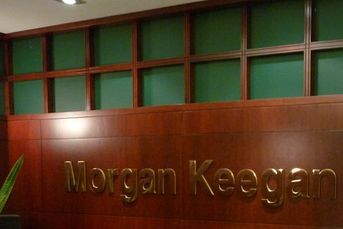U.S. muni yields rise fifth day amid signs economy strengthening
U.S. municipal-bond yields rose for a fifth straight day to the highest in more than four months as government reports pointed to a recovery in housing.
U.S. municipal-bond yields rose for a fifth straight day to the highest in more than four months as government reports pointed to a recovery in housing.
The yield on top-rated tax-exempt bonds due in 10 years rose about two basis points to 2.31 percent at 3:01 p.m. in New York, the highest since Nov. 7, according to a Bloomberg Valuation Index. The 30-year tax-exempt yield climbed 3 basis points to 3.52 percent, the highest since Jan. 25. A basis point is 0.01 percentage point.
Investors in the $3.7 trillion municipal market are joining a wave of sales of fixed-income assets. Treasury 10-year notes fluctuated after dropping a 10th consecutive day as signs build that the economy is strengthening. Housing starts held in February near a three-year high and building permits rose, government reports showed today.
“It goes hand-in-hand with Treasuries,” said David Frank, a managing director in public finance at CastleOak Securities LP in New York. “They had a huge rally in January, as munis did, and they just got to levels that real investors don’t have any interest in whatsoever.”
Ten-year Treasury notes yielded about 2.37 percent at 3:04 p.m. New York time, according to Bloomberg Bond Trader prices.
January Returns
Treasuries returned 0.5 percent in January, compared with 2.55 percent for muni debt, according to Bank of America Merrill Lynch index data. Munis returned 11.2 percent in 2011, beating Treasuries, corporate debt, commodities and stocks.
The 10-year muni benchmark yield has risen from 1.74 percent on Feb. 2, the lowest since at least January 2009, according to Bloomberg Valuation data.
Municipal bonds have lost 1.1 percent this month through March 19, according to Bank of America Merrill Lynch indexes tracking prices and coupon payments, putting them on track for their worst month since December 2010, when they declined 2 percent.
“It’s definitely not a robust market yet,” Frank said. “We haven’t reached the equilibrium level yet where people are saying ‘we like those yields.’”
–Bloomberg News–
Learn more about reprints and licensing for this article.







